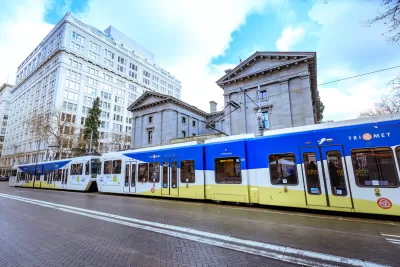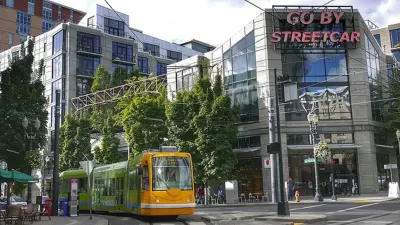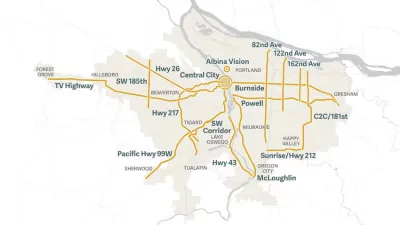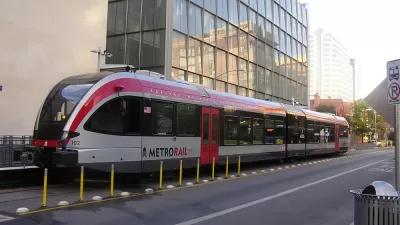A heated dispute over a $5 billion Metro transportation funding ballot measure has erupted between climate activists and a group representing Portland's big business interests.

Portland area voters will decide on a Metro transportation funding measure that could bring a new MAX line running from Downtown to underserviced southwest Portland, allow TriMet to gradually transition from diesel to electric busses, and enable several other "safety, transit, and infrastructure improvements across the Metro region," reports Blair Stenvick.
A 0.6% payroll tax on most employers with over 25 employees on payroll is proposed to fund the work. Due to the economic landscape resulting from the coronavirus pandemic, several big businesses in the Portland metro area have banded together to oppose the measure.
According to Stenvick, opposition group Stop the Metro Wage Taxt recent advertisement described the measure as "a permanent new wage tax on struggling employers and nonprofits." Multinational corporations like Nike and Intel are among the opponents of the tax.
"But for a coalition of environmental organizations supporting the ballot measure, the transportation improvements it would fund can’t wait for a more economically convenient time. These groups are framing the measure as Oregon voters’ key chance to address climate change—an issue on which the clock is ticking—during the November election," says Stenvick, noting the transportation sector as the largest emitter of carbon in Oregon.
The fate of the measure is in the hands of the voters. BlueGreen Alliance Oregon State Policy Coordinator Ranfis Villatoro wants voters to know that if the measure passes, the payroll tax would not be collected until 2022 and that 91% of employers in the metro area don't have the 25 employee payroll required for the tax.
FULL STORY: Backers of Metro Transportation Funding Measure Say Climate Change Is on the Ballot

Alabama: Trump Terminates Settlements for Black Communities Harmed By Raw Sewage
Trump deemed the landmark civil rights agreement “illegal DEI and environmental justice policy.”

Study: Maui’s Plan to Convert Vacation Rentals to Long-Term Housing Could Cause Nearly $1 Billion Economic Loss
The plan would reduce visitor accommodation by 25% resulting in 1,900 jobs lost.

Why Should We Subsidize Public Transportation?
Many public transit agencies face financial stress due to rising costs, declining fare revenue, and declining subsidies. Transit advocates must provide a strong business case for increasing public transit funding.

Paris Bike Boom Leads to Steep Drop in Air Pollution
The French city’s air quality has improved dramatically in the past 20 years, coinciding with a growth in cycling.

Why Housing Costs More to Build in California Than in Texas
Hard costs like labor and materials combined with ‘soft’ costs such as permitting make building in the San Francisco Bay Area almost three times as costly as in Texas cities.

San Diego County Sees a Rise in Urban Coyotes
San Diego County experiences a rise in urban coyotes, as sightings become prevalent throughout its urban neighbourhoods and surrounding areas.
Urban Design for Planners 1: Software Tools
This six-course series explores essential urban design concepts using open source software and equips planners with the tools they need to participate fully in the urban design process.
Planning for Universal Design
Learn the tools for implementing Universal Design in planning regulations.
Smith Gee Studio
Alamo Area Metropolitan Planning Organization
City of Santa Clarita
Institute for Housing and Urban Development Studies (IHS)
City of Grandview
Harvard GSD Executive Education
Toledo-Lucas County Plan Commissions
Salt Lake City
NYU Wagner Graduate School of Public Service





























